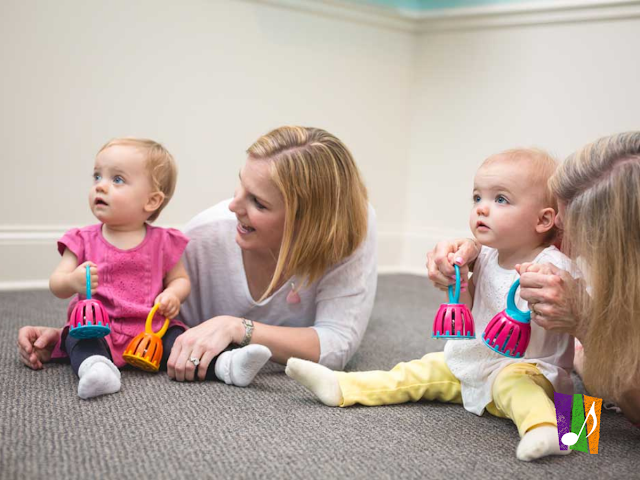How Music Boosts Brain Development in Babies
We’ve all heard the idea that classical music can make you smarter.
We’re told that listening to music while studying for a test can improve your score, or that playing music for a child in the womb can increase their IQ. In truth, the link between music and intelligence has yet to be proven.
But while playing Mozart for your child may not give them a genius-level IQ, recent studies show that music can play a vital role in brain development. Music enhances cognitive, emotional, and social development, especially when babies are exposed to it from an early age.
Let’s take a closer look at how music boosts brain development in babies.
Music Exposure Improves Pattern Recognition
A study done by the University of Washington’s Institute for Learning and Brain Sciences (I-LABS) found that playing music for 9-month-old babies while they played with their parents improved their brain’s processing of rhythm in both music and speech.
Christina Zhao, lead researcher on the study, noted that this study was "the first to demonstrate that a type of enriched experience with sound other than language can influence infants' speech sound processing."
Half of the infants in the study were exposed to music while they played, while the other half were not. After a week of this, the babies’ brains were scanned while the music played with occasional interruptions. The infants in the group who had listened to music while playing showed a stronger response to the interruptions than those in the control group.
This suggests that engaging in play sessions with music improved the babies’ ability to detect patterns in sounds. This type of pattern perception is a vital cognitive skill that assists in speech development.
Strong Pattern Recognition Skills Help Babies Learn
The ability to detect, anticipate, and react to patterns in sound are necessary skills in learning language.Babies pick up language through exposure. From birth — and long before they understand words or phrases — they quickly learn to tune in to their parents’ voices. At this point, what they are hearing is simply rhythms and sounds that convey emotion.
If that sounds a lot like music to you, you’d be right! Language and music both have strong rhythmic patterns, and the way we learn language and the fundamentals of music are very similar.
Then, when babies are around 3-6 months old, they begin experimenting with their voices. Their random coos, squeals, and shrieks quickly evolve into a babbling non-speech that follows the rhythms and patterns of speech. From there, they start to implement more consonant sounds and experiment with rhythm and repetition.
Exposing your baby to music can speed up this speech learning process and help them master complex language concepts more quickly.
Listening to Music Is Good; Learning to Play Music Is Even Better
Going back to that study from the University of Washington, researchers additionally found that though listening to music showed improvement in the babies’ pattern recognition skills, musical training is an even more powerful tool.Whether it’s singing, thumping a drum, or rhythmically wielding a shaker, introducing your baby to basic musical concepts will help develop the areas of the brain needed to master language, improve memory skills, boost future academic success, and more.
That’s where beginning musical classes like Kindermusik come in.
Kindermusik provides engaging musical learning experiences during the years most critical to brain development. Participating in Kindermusik classes with your baby helps you strengthen parent-child bonds, better understand your baby’s development, and focus on communicating with them, all while enjoying instrument play, dance, and more.
To learn more about how music boosts brain development and how Kindermusik classes at Take Note Studio can help, reach out to us today or click here to learn more and enroll.








Comments
Post a Comment